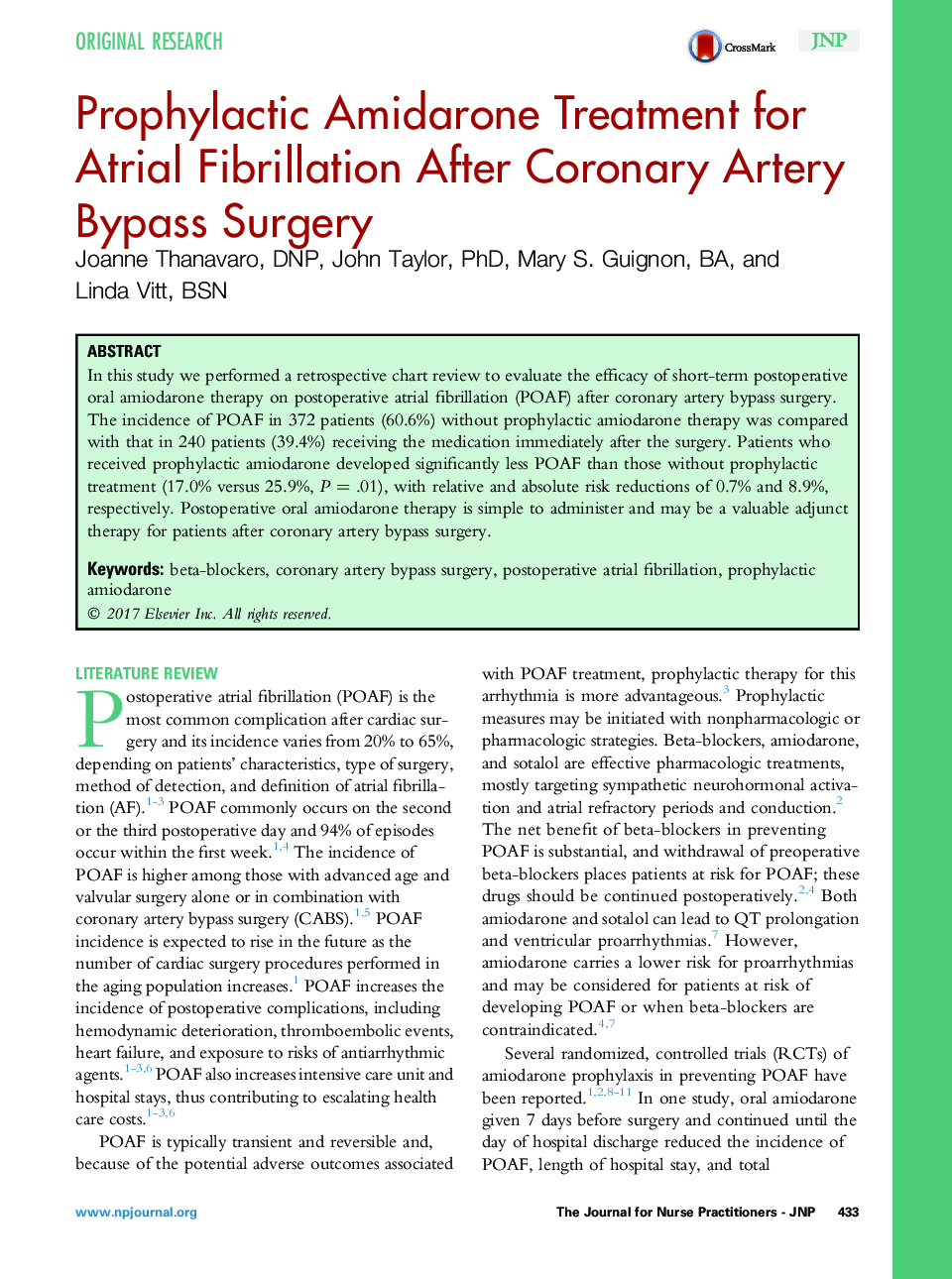| Article ID | Journal | Published Year | Pages | File Type |
|---|---|---|---|---|
| 5569803 | The Journal for Nurse Practitioners | 2017 | 8 Pages |
â¢Preventive strategies for postoperative atrial fibrillation are not universally accepted, even with the proven benefits shown in randomized, controlled trials.â¢Patient with prophylactic amiodarone therapy developed significantly less postoperative atrial fibrillation than those without treatment (17% vs 25.9%, P = .01), with relative and absolute risk reductions of 0.7% and 8.9%, respectively.â¢Postoperative oral amiodarone therapy is simple to administer and may be an important adjunct therapy to postâcoronary artery bypass surgery care.â¢This study demonstrated the feasibility of applying knowledge from randomized, controlled trials into positive patient outcomes for prevention of postoperative atrial fibrillation.
In this study we performed a retrospective chart review to evaluate the efficacy of short-term postoperative oral amiodarone therapy on postoperative atrial fibrillation (POAF) after coronary artery bypass surgery. The incidence of POAF in 372 patients (60.6%) without prophylactic amiodarone therapy was compared with that in 240 patients (39.4%) receiving the medication immediately after the surgery. Patients who received prophylactic amiodarone developed significantly less POAF than those without prophylactic treatment (17.0% versus 25.9%, PÂ = .01), with relative and absolute risk reductions of 0.7% and 8.9%, respectively. Postoperative oral amiodarone therapy is simple to administer and may be a valuable adjunct therapy for patients after coronary artery bypass surgery.
